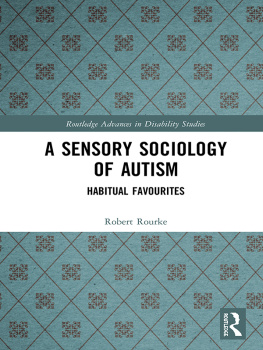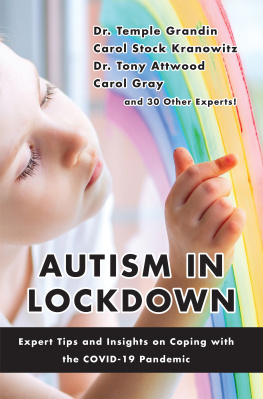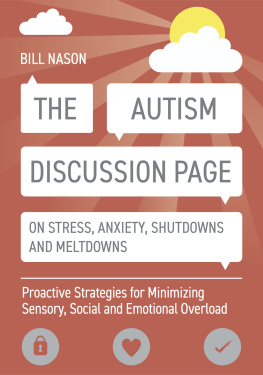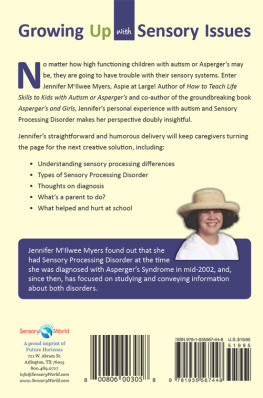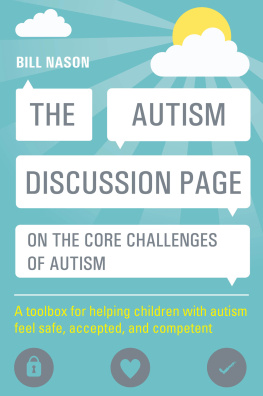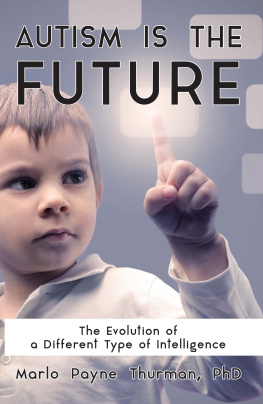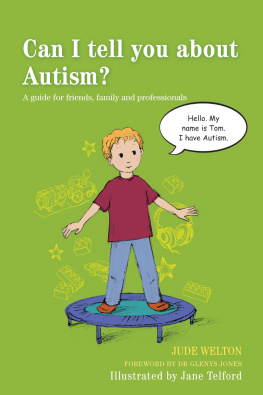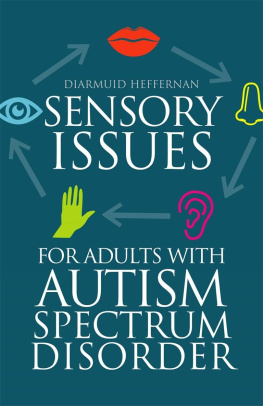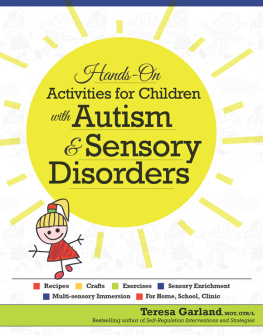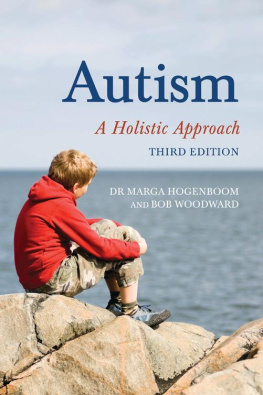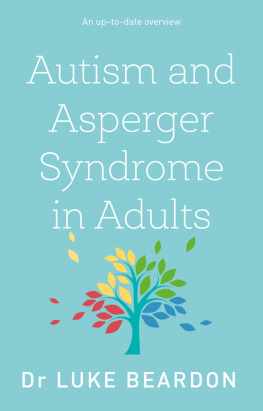A Sensory Sociology of Autism
This innovative book places the sensory experiences of autistic individuals within a sociological framework. It instigates new discussions around sensory experience, autism and how disability and ability can be reconceived.
Autism is commonly understood to involve social and communication difficulties. Less commented upon is the sensory challenges faced by those with autism. Sociology is no different, focusing on communication and neglecting the sensory dimensions of experience. Sensory experiences and relations are central to how we understand and navigate through the natural and social worlds, and mediate our interactions with other people, objects and spaces. In this book, the author explores how these processes are affected by the favourite activities of autistic people.
With real-life case studies and cutting-edge research, this book will be useful to students, autistic people, advocates and carers, disability studies researchers and sociologies of disability and the senses.
Robert Rourke is a Sociology PhD graduate who is interested in social theory, continental philosophy and disability studies. He is particularly interested in reimagining the dis/ability divide and examining how attention to autistic experience can reveal mundane power structures.
Routledge Advances in Disability Studies
Intellectual Disability and Being Human
A Care Ethics Model
Chrissie Rogers
The Changing Disability Policy System
Active Citizenship and Disability in Europe Volume 1
Edited by Rune Halvorsen, Bjrn Hvinden, Jerome Bickenbach, Delia Ferri and Ana Marta Guilln Rodriguez
Citizenship Inclusion and Intellectual Disability
Biopolitics Post-Institutionalisation
Niklas Altermark
Intellectual Disability and the Right to a Sexual Life
A Continuation of the Autonomy/Paternalism Debate
Simon Foley
The Changing Disability Policy System
Active Citizenship and Disability in Europe Volume 2
Edited by Rune Halvorsen, Bjrn Hvinden, Jerome Bickenbach, Delia Ferri and Ana Marta Guilln Rodriguez
Cultural Disability Studies in Education
Interdisciplinary Navigations of the Normative Divide
David Bolt
Institutional Violence and Disability
Punishing Conditions
Kate Rossiter and Jen Rinaldi
A Sensory Sociology of Autism
Habitual Favourites
Robert Rourke
For more information about this series, please visit: https://www.routledge.com/Routledge-Advances-in-Disability-Studies/book-series/RADS
First published 2019
by Routledge
2 Park Square, Milton Park, Abingdon, Oxon OX14 4RN
and by Routledge
52 Vanderbilt Avenue, New York, NY 10017
Routledge is an imprint of the Taylor & Francis Group, an informa business
2019 Robert Rourke
The right of Robert Rourke to be identified as author of this work has been asserted by him in accordance with sections 77 and 78 of the Copyright, Designs and Patents Act 1988.
All rights reserved. No part of this book may be reprinted or reproduced or utilised in any form or by any electronic, mechanical, or other means, now known or hereafter invented, including photocopying and recording, or in any information storage or retrieval system, without permission in writing from the publishers.
Trademark notice: Product or corporate names may be trademarks or registered trademarks, and are used only for identification and explanation without intent to infringe.
British Library Cataloguing in Publication Data
A catalogue record for this book is available from the British Library
Library of Congress Cataloging-in-Publication Data
A catalog record has been requested for this book
ISBN: 978-1-138-49199-1 (hbk)
ISBN: 978-1-351-03150-9 (ebk)
I would like to thank Dan Goodley for his generous insight and help with getting me in contact with the Interdisciplinary Disability Studies editor after my viva. His enthusiasm for the project gave me a sense of direction and purpose to my thinking. I also give thanks to Mum, who provided constant reminders and check-ups on the book writing process.
Consider the importance of our senses in everyday living. Imagine the challenges of everyday living if our sensory perceptions were constantly confused, ephemeral and uncertain. Now, think of how distressing and disruptive experience would be if our sensory systems were so reduced that we could not feel pain or hunger, or smell dangerous chemicals. Or if our sensory perceptions were so potent that lightbulbs become gigantic spotlights, affectionate caresses become sandpaper being vigorously rubbed against the skin. Life, experience, interactions with people and things, become a blur, unreal, there is no concreteness to attach to. No one can communicate with us and there is no recourse for us to communicate with them. However, remember that sensory experience can also be pleasurable and bring us to higher levels of experience. The light breeze in a park, next to a large tree, can invoke feelings of awe. The age and experiences of the tree can be felt in the rough bark, which, rather than being painful, like that of the affectionate hand, is fascinating, not something to remove ourselves from as soon as possible. The bark conveys the wonders of nature and the different material nature of trees as compared to people. Life becomes boundless, the wonders of how everything interconnects on an abstract, as well as material level, brings forth an excitement and affective passion for life that is almost impossible to put into words.
Equally, keep in mind that sometimes nothing terrible or incredible happens; sensory experience is mundane, even boring; it almost recedes to the background of awareness so that we do not even notice that sensory input is registered at all. Or, negative sensory input is easily dealt with to restore balance without intense reactions. The noise of the TV may be too loud, but we can turn it down. A jumper may have large, white labels inside that rub against our skin on a rare occasion, temporarily and very mildly distracting us. But, they can simply be cut out, no big issue, problem solved. Nobody would even know it had been done, a perfectly rational and practical response, just as any person without alternative sensory sensitivities would do. Even though this removal of the label occurred on the same day our friends sandpaper hands made us jump up in pain and tense up in anxiety. Thinking about all these distinct, potentially overlapping possibilities has caused physical and mental exhaustion. The only thing left to do is retreat to the bedroom, or rather, sanctuary and lie on the bed, recovering from the anxiety, physical tension and sense of dread that has overcome any other sensations or thoughts. This eclectic jumbled and disorientating array of sensory perceptions and processes of making sense of these perceptions is how the sensory experience of someone with autism might manifest.
This book is a sociological exploration and examination of the mechanisms, relations and actions that impact on the intersection between habitual relations with favourites and the sensory experiences and dynamics of those with autism. Favourites as a singular term here is treated as conceptual short-hand that brings together favourite activities, people, events, objects, places, consumption practices and areas of interest. I examine the ways in which the repetitive and

